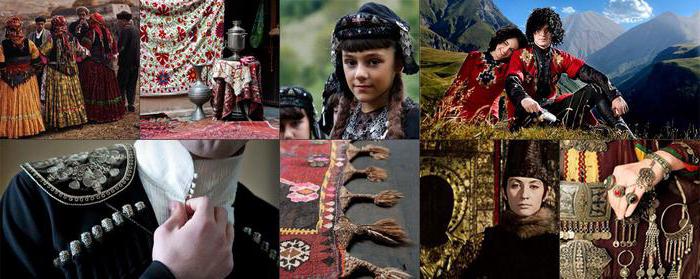What is the culturological approach?
The specific methodology of any science is revealed through certain principles. In pedagogy it is an anthropological, holistic, personal, activity and culturological approaches. Let's consider their features.

a brief description of
The principle of integrity arose as opposed tofunctional approach, through which the study of a certain aspect of the educational process is carried out, regardless of the changes occurring in this process in general and in the person participating in it.
The essence of the functional approach is that,that the study of pedagogy as a system with a well-defined structure is carried out. In it, each link realizes its functions in the solution of the task. In this case, the motion of each such element obeys the laws of motion of the entire system as a whole.
From the holistic approach follows the personal. Through his affirmation of the idea of the creative, active, social essence of the individual.
To master the achievements of culture, according to AN Leontiev, each successive generation should carry out similar activities, but not identical to the one that was carried out earlier.
Formational, civilizational, culturological approaches
To fix the stages of development of societythe concept of "civilization" is used. This term is often used in journalism and science today. The study of history on the basis of this concept is called a civilizational approach. Within its framework, two key theories are singled out: universal and local civilizations.
The analysis of society from the position of the first theory is very close to the formation approach. Formation refers to the type of society that arose on the basis of a specific mode of production of material goods.
A key role in the formation belongs to the basis. They call the complex of economic relations that are formed between individuals in the process of creation, distribution, consumption and exchange of goods. The second key element of the formation is the superstructure. It is a combination of legal, religious, political, other views, institutions, relationships.

From cultural approach The principle of studying the development of humanity is differentthe presence of three interrelated aspects: axiological (value), personal-creative, technological. It is presented in the form of a set of methodological methods through which the analysis of all spheres of the individual's mental and social life is carried out through the prism of specific system-forming concepts.
The axiological aspect
The culturological approach for each activity, they determine their criteria, grounds, assessments (standards, norms, etc.), as well as methods of evaluation.
The axiological aspect presupposes the organizationpedagogical process in such a way that the study and formation of value orientations of each individual occurred. Under the orientations are understood the formation of moral consciousness, its basic ideas, the benefits coordinated in a certain way and expressing the essence of the moral meaning of being, and also in the mediated plan the most common cultural and historical perspectives and conditions.
Technological aspect
It is connected with the understanding of culture as a way ofactivities. The concepts of "activity" and "culture" are interdependent. To determine the adequacy of the development of culture, it is sufficient to follow the development, evolution of human activity, its integration, differentiation.
Culture, in turn, can be considereduniversal property of activity. It forms a socio-humanistic program, predetermines the direction of a particular type of activity, its results and characteristics.
The personal and creative aspect
It is conditioned by the existence of an objective connectionbetween culture and a particular individual. Man is the bearer of culture. The development of the individual occurs not only on the basis of its objectified essence. Man always introduces something new into culture, thus becoming the subject of historical creation. In this regard, within the personal-creative aspect, the mastery of culture must be regarded as a process of changing the individual, his development as a creative person.
Culturological approach in education
It is generally accepted thatculturological principle involves the study of the human world within the framework of its cultural existence. Analysis allows you to determine the meaning by which the world is filled for a particular individual.

Culturological approach in education involves the study of the phenomenon of culture ascore element in the explanation and understanding of the person himself, his life activity and consciousness. Proceeding from this, different aspects of the essence of the individual are understood in their "hierarchical conjugation". Speech, in particular, about self-awareness, morality, spirituality, creativity.
AT research cultural approach focuses on the vision of a person through a prismthe very concept of culture. As a result, a person is seen as an active, free individual, capable of independent determination when communicating with other personalities and cultures.
To study the use of the content partculturological approach to the educational process, the special position is that the culture is viewed more as an anthropological phenomenon. In its essence, it acts as a self-realization of a person, unfolded in time. The basis of culture is the "rootlessness" of people in nature. A person has a need to realize motivations that are not instinctive. Culture acts as a product of the open nature of man, not completely fixed.
Values
When using the culturological approach tothe study of the history of mankind values are regarded as factors that determine the culture from within, from the depths of social and personal life. They act as the core of the culture of society in general and of man in particular.
Culture, representing an anthropologicalphenomenon, is determined through the resulting value relationships. It is expressed in the complex of the accumulated results of activity, and in relation to the person to himself, society, nature.
According to several authors, culturological approach provides a consideration of value as an expression of the human dimension of culture. It realizes the relation to different forms of being. This opinion, in particular, adheres Gurevich.
The problem of correlation of values
On the personal level, the abstract content of the axiological element culturological approach manifests itself in the individual's ability to evaluate andchoose, in the hope of realizing the expectations that the person has in the system of value orientations and perceptions. Thus there is a problem of a parity between the blessings acting the real driving force and the declared blessings.

Any universally valid value acquires a real value exclusively in the individual context.
Peculiarities of perception
According to culturological approach, in history the assimilation of values occurs throughinner experiences of each individual. The developed moral norms can be perceived if they are experienced and accepted by the person at the emotional level, and not only understood rationally.
The individual takes possession of the values himself. He does not assimilate them in ready-made form. The acquisition of cultural values is the essence of the educational process as anthropogenic cultural practice.
Culture as a means of action
Ability to act as a methodIt is considered a fundamental distinctive feature of culture. This property concentrates its essence, integrates other characteristics.
Recognizing the existence of a close relationship between culture and activity, justifying the need to disclose the latter through its dynamic components, representatives activity-culturological approach conduct its analysis in two key areas.
To supporters of the first concept carry Buev,Zhdanova, Davidovich, Polikarpova, Khanov, etc. As the subject of the study, they determine the questions relating to the general characteristics of culture as a special universal property of the social life of people. In doing so, it acts as:
- A specific way of carrying out activities.
- A complex of spiritual and material objects, as well as activities.
- The totality of ways and fruits of the life activity of a collective subject-society.
- The mode of activity of a single social subject.
Representatives of the second direction emphasize the personal and creative nature of culture. Among them, Kogan, Baller, Zlobin, Mezhuyev, and others.

The personality-creative component is considered within the framework of culturological approach through the prism of spiritual production, development, functioning of personality.
The peculiarity of this theory is that cultureis considered as a complex of qualities and properties that characterize man in the first place as a universal subject of the socio-historical process of creation.
The technological concept of activity
Supporters of the technological component culturological approach understand the thesis that technologyactivity itself has a social character. This position is confirmed by various conclusions, including that culture is a "way of the way". Such a "non-technological" meaning expresses a higher level of community of the spiritual and subject-transforming activity of man.
Meanwhile, the characteristictechnological-activity aspect will be incomplete if its cognitive capabilities are not revealed. Within the framework of any concept, the subject can be considered at a specific angle, which does not give a complete picture of it.
Cognitive possibilities and limits of the activity concept are determined mainly by a functional understanding of the concept of "culture".
Ability to create
In the 70's. The personal and creative concept was established in the last century. Its essence lies in the fact that the basis for understanding the phenomenon of culture is the historically active creative activity of man. Accordingly, in the process of creativity, the individual develops as a subject of activity. With him, in turn, the development of culture also coincides.

L.N. Kogan emphasized the ability of culture to realize the essential forces of the individual. At the same time, the author attributed to the cultural sphere that activity in which the individual reveals himself, "objects" his forces in the products of this activity. Supporters of the personal and creative aspect define culture as human actions committed in the past and performed in the present. It is based on mastering the results of creation.
Within the framework of this concept, in the analysis of activitiesa person is assessed the level of compliance with its development, self-realization, self-improvement rights. The accent, therefore, is made on the personal-developing, humanistic essence of culture.
Finally
When using the culturological approachthe assimilation of culture can be interpreted as a process of individual discovery, creativity, creation of the world in man, participation in cultural exchange. All these processes cause individual and personal actualization of the meanings inherent in culture.
The culturological approach providesthe formation of a humanistic position, within which a person is recognized as a key figure in development. Attention is focused on the individual as a subject of culture, possessing the ability to contain all its former meanings and at the same time create new ones.

Three mutually conditioned fields are formed:
- Personal growth.
- Increase the level of culture.
- Development and growth of cultural level in the pedagogical sphere as a whole.
Cultural approach can be applied in the context of pedagogical, philosophical, psychological, cultural anthropology, depending on the research objectives.
</ p>







